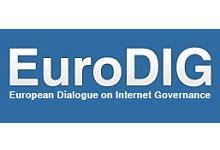International access to research content and sensitive data
30 Jun 2021 11:15h - 12:15h
Event report
The roundtable focused on Open Science which represents sharing of sensitive and research content online. In particular, the discussion considered the European context and analysed Europe’s approach to data access and sharing.
The conversation started with a zoom out view at the international level. Despite the vast majority of initiatives on open science being mainly present at the regional level, internationally there are also many policies and frameworks that tackle the exchange of scientific data in particular in specific scientific fields (e.g. the exchange of satellite imagery).
There are indeed multiple factors that hinder cooperation on open science: from political considerations (different stakeholders have different views and interests), to funding-related problems and infrastructure gaps (e.g. the case of internet penetration in most parts of the world). In November 2019, UNESCO member states asked the organization to launch consultations to develop a wider and shared framework on open science. As Ms Fereshteh Rafieian (Associate Programme Specialist, UNESCO) explained, the Recommendation on Open Science, formally adopted in May 2021, contains a common definition of open science as well as shared values and guiding principles that member states have in common while not overlooking each states’ differences in perspectives.
Is Europe ready for Open Secience?
The answer is favourable, said Ms Sarah Jones (EOSC Engagement Manager, GÉANT), if we consider the grounding work the European Union has been doing since 2015, especially regarding the European Open Science Cloud (EOSC). The objective is to create a space in which data can be brought together with services to perform analysis and address societal challenges. Such a system relies on a web of FAIR (Findable, Accessible, Interoperable and Reusable) data and services and on a federation of research infrastructures.
Security measures for the transmission of sensitive and research data
The attention was drawn in particular to the best practices which EOSC implemented in sharing sensitive data. To ensure accessibility to the data while preserving its security, it is important to put into place a repository that is easily accessed, clearly licensed, with a Persistent Identifier (PID) for identification and tracking, and to deidentify, anonymise, and aggregate data as necessary.
In addition to technical measures, there are numerous legal tools for ensuring the security of data and ultimately the rights of the people affected. Ms Birgitte Kofod Olsen (Carve Consulting & Co-Founder of DataEthics.eu) enumerated three guiding principles that can point us in the right direction:
- use the existing legal frameworks for exploring data in a new manner: ‘we have solid legal frameworks […] and it is possible to manoeuvre within them when tackling data protection’. Some examples include the CoE’s Convention on Human Rights and Biomedicine (1997), the GDPR, and the Draft AI and Regulation, in addition to the EU Treaty Charter and the EU Convention on Human Rights.
- use available technologies to ensure protection of fundamental rights and freedoms at the same time as processing and analysing data more efficiently and to the benefit of all
- the interest and welfare of the human being shall prevail over the sole interest of society and science
She clarified that a lot of work has also been done when it comes to the operationalisation of such principles starting, in particular, with the principle of human primacy over technology. A debate followed on the persisting challenges on the operationalization of such principles. Although the tools are indeed already available, there are still difficulties on how they could be implemented in everyday activities and be built into the system which would open the access to data. One solution, for example, is to include specific licensing protocols and patents in the cloud at the very point of conception of the platform (i.e. in the design phase).
The floor was then opened for an exchange with the audience which reiterated the difficulty of the integration of legal principles in daily activities and debated on the financial sustainability of the open access business model.
Common principles and values
In the end, speakers convened that the common principles and values such as openness and collaboration are at the very core of science. Moreover, they stressed the importance of always following FAIR (Findable, Accessible, Interoperable and Reusable) and CARE (Collective Benefit, Authority to Control, Responsibility and Ethics) principles when dealing with data. Together with the audience, speakers unanimously stressed the importance of education and, in particular, the need for policymakers to better understand the needs of scientists.
Related topics
Related event

